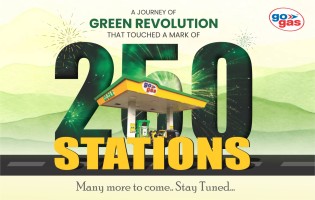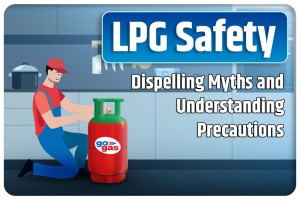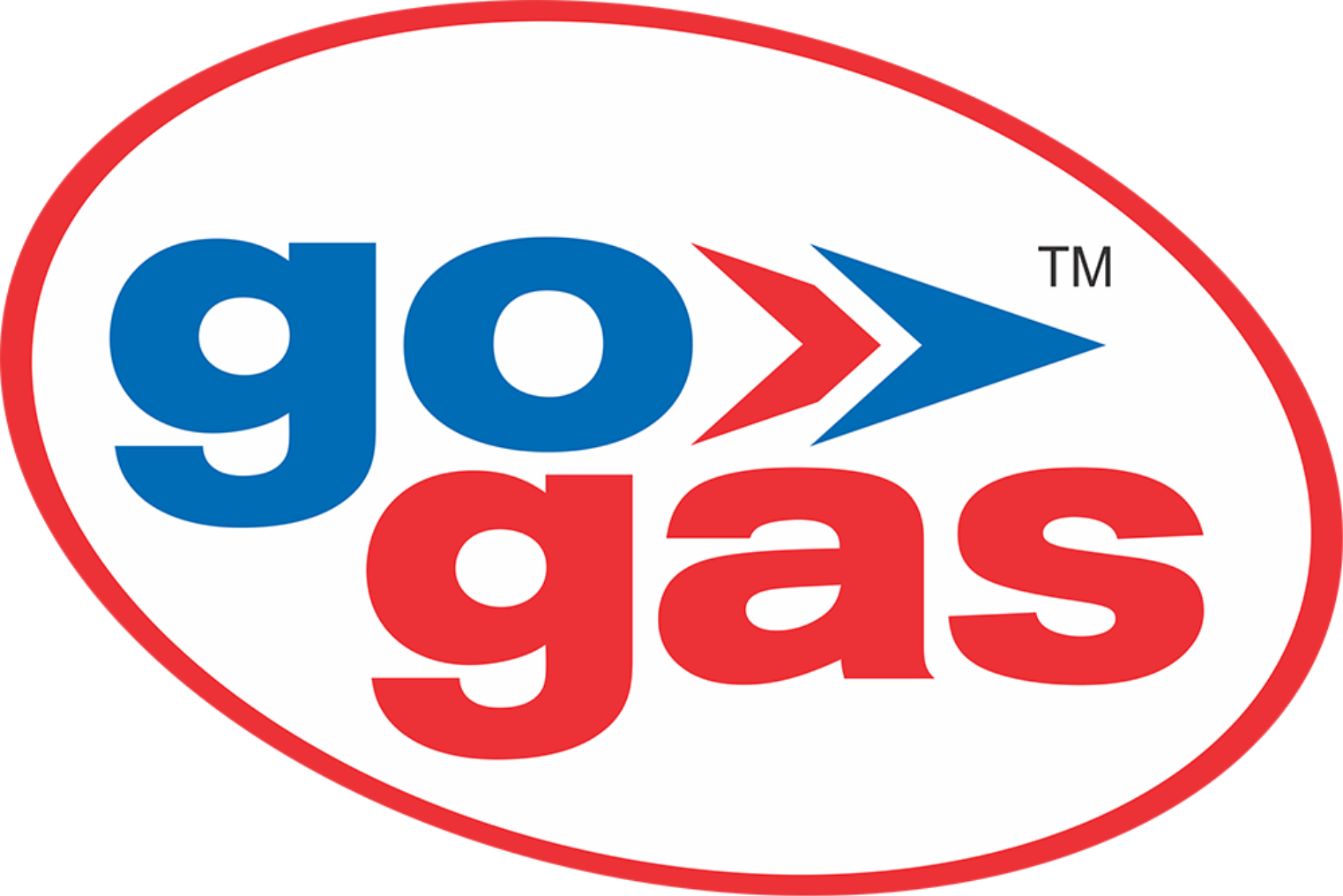Blog Details
LPG-Powered Vehicles: A Sustainable Transportation Solution
In today's rapidly
evolving world, the need for sustainable transportation has become more
critical than ever before. As we face the challenges of climate change,
dwindling natural resources, and growing urbanization, it is becoming
increasingly clear that our current transportation systems are not sustainable
in the long run. The negative impacts of conventional transportation, such as
air pollution, greenhouse gas emissions, and traffic congestion, have led to a
growing demand for alternative fuel options that can pave the way for a more
sustainable future.
In an era where sustainability and environmental consciousness are at the forefront of global concerns, the transportation sector plays a pivotal role in shaping a greener future. With the rise of alternative fuels, LPG (liquefied petroleum gas) has emerged as a promising solution to mitigate the environmental impact of traditional gasoline and diesel vehicles. In this blog post, we delve into the world of LPG-powered vehicles and explore how initiatives like GoGas LPG Dealership are revolutionizing the automotive industry.
Understanding
the Importance of Sustainable Transportation
Sustainable
transportation is essential for reducing the environmental impact of our
mobility choices. It encompasses a wide range of solutions, including
alternative fuels like LPG (liquefied petroleum gas), which have gained
significant attention for their potential to reduce emissions and promote environmental
responsibility. LPG, also known as propane, offers numerous advantages over
traditional fossil fuels, making it a compelling choice for sustainable
transportation.
Powering
the Future of Transportation
LPG-powered vehicles are
emerging as a sustainable transportation solution, offering a clean and
abundant fuel option that can significantly reduce harmful emissions. Propane,
the main component of LPG, is a versatile and eco-friendly alternative that is
increasingly being adopted across various sectors. It can be used to power
internal combustion engines, providing a viable alternative to gasoline and
diesel vehicles.
Harnessing
Renewable Energy Sources
One of the key benefits
of LPG is its potential to harness renewable energy sources. As the world seeks
to transition towards a cleaner and greener future, alternative fuels like LPG
play a crucial role in reducing our dependence on fossil fuels and mitigating
the environmental impact of transportation. By embracing LPG-powered vehicles,
we can work towards a more sustainable and resilient transportation system that
is less reliant on non-renewable resources.
A
Clean and Abundant Fuel Option
Propane, the primary
component of LPG, is a domestically produced fuel that offers energy security
and reduces air pollution. Using propane as a vehicle fuel increases energy
security, provides the convenience of on-site fueling, and reduces the
environmental impacts of vehicles. Propane vehicles have been widely used and
refined for decades, with power, acceleration, and cruising speed similar to
those of conventionally fueled vehicles.
The
Benefits of LPG-Powered Vehicles
LPG-powered vehicles
offer a range of benefits that make them an attractive option for sustainable
transportation. Some of the key advantages include:
- Environmental Sustainability: LPG-powered vehicles produce
significantly lower emissions of harmful pollutants such as carbon dioxide
(CO2), nitrogen oxides (NOx), and particulate matter compared to gasoline and
diesel vehicles. By choosing LPG, individuals can contribute to improving air
quality and reducing their carbon footprint.
-
Reduced Emissions: LPG-powered vehicles produce lower
amounts of harmful air pollutants and greenhouse gases compared to conventional
diesel and gasoline vehicles, contributing to improved air quality and reduced
environmental impact.
-
Energy Security: LPG is a domestically produced fuel,
which helps to diversify the U.S. fuel supply and reduce reliance on imported
petroleum, strengthening national energy security.
-
Lower Maintenance Costs: Propane's high octane rating and low
carbon and oil contamination characteristics can result in improved engine life
and lower maintenance costs, making it a popular choice for high-mileage
vehicles.
- Cost-Effectiveness: In addition to being environmentally friendly,
LPG is also more cost-effective than traditional fuels. With fluctuating fuel
prices, LPG offers a stable and affordable alternative for motorists, helping
them save money on fuel expenses in the long run.
-
Abundant Availability: LPG is widely available and can be
used to power various vehicles, including light- and medium-duty vehicles,
heavy-duty vehicles, and even as fuel for heating and cooking.
-
Renewable Energy Integration: LPG can be produced from
renewable sources, further enhancing its potential to contribute to a more
sustainable and environmentally friendly transportation system.
Efficient
Performance: LPG-powered vehicles deliver efficient
performance without compromising on power or reliability. With advancements in
technology, modern LPG conversion kits ensure seamless integration with
existing vehicle engines, providing a smooth driving experience for motorists.
The
Rise of LPG-Powered Vehicles
LPG, a cleaner-burning
fuel derived from natural gas processing and petroleum refining, has gained
traction as a viable alternative to conventional fuels due to its lower
emissions and cost-effectiveness. LPG-powered vehicles offer a sustainable
transportation solution that addresses both environmental concerns and economic
considerations.
While LPG-powered
vehicles offer numerous benefits, there are also some considerations to keep in
mind. For example, the fuel economy of LPG vehicles may be slightly lower than
that of gasoline vehicles due to the lower energy content of propane. However,
the lower per-gallon cost of LPG can quickly offset the lower fuel economy,
making it a cost-effective and sustainable fuel option.
Additionally, the
availability of fueling infrastructure is an important factor to consider when
adopting LPG-powered vehicles. Fleets and consumers can use existing public
infrastructure or work with local propane marketers to establish private
infrastructure, which can greatly reduce the end cost of the fuel.
Introducing
GoGas Auto LPG Station
GoGas, a pioneering
initiative in the field of sustainable transportation, offers individuals the
opportunity to become part of the green revolution by setting up their own Auto
LPG Station. As an authorized GoGas LPG Dealer, individuals can play a crucial
role in promoting eco-friendly transportation solutions while also generating a
steady income stream.
Land
for Auto LPG Station
One of the key
requirements for setting up an Auto LPG Station is access to suitable land. The
ideal location for an Auto LPG Station is a plot of land with specific
dimensions, typically measuring a minimum of 85 feet by 95 feet. The land
should be strategically located on a main road to ensure easy accessibility for
customers.
Setting
Up an Auto LPG Station
Setting up an Auto LPG
Station involves several steps, including securing the necessary permits and
approvals, installing the required infrastructure, and ensuring compliance with
safety regulations. GoGas provides comprehensive support to its dealers
throughout the setup process, offering guidance and assistance every step of
the way.
Conclusion
In conclusion,
LPG-powered vehicles are a sustainable transportation solution that offers a
range of benefits, including reduced emissions, energy security, and lower
maintenance costs. As the world continues to seek alternative fuel options to
reduce the environmental impact of transportation, LPG emerges as a versatile
and eco-friendly alternative that is increasingly being adopted across various
sectors. By embracing LPG-powered vehicles, we can work towards a cleaner,
greener future for transportation, reducing our dependence on fossil fuels and
mitigating the environmental impact of our mobility choices.
The transition towards
sustainable transportation will likely involve a combination of different
alternative fuels, tailored to meet the unique needs of various sectors and
regions. By considering the unique advantages and limitations of each fuel
option, we can create a comprehensive strategy that maximizes the benefits and
minimizes the drawbacks. The road to a greener future may not be without its
challenges, but with the continued efforts to overcome these barriers,
LPG-powered vehicles have the potential to play a crucial role in driving the
green revolution and promoting sustainable transportation on a global scale.
Join the movement towards
sustainable transportation today with GoGas LPG Dealership and positively
impact the environment while securing a lucrative business opportunity.
Contact GoGas to learn more
about setting up your own Auto LPG Station and becoming a part of the green
revolution in transportation.
Latest Blogs
Suggested Blogs

How Liquefied Petroleum Gas (LPG) Transforms Commercial and Industrial Business Success
Read More
LPG for Rural Development: Empowering Communities with Clean Energy
Read More
GoGas Opens 250th Auto LPG Station, Strengthening Commitment to Sustainable Mobility
Read More
